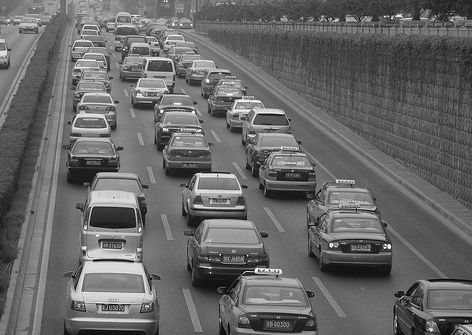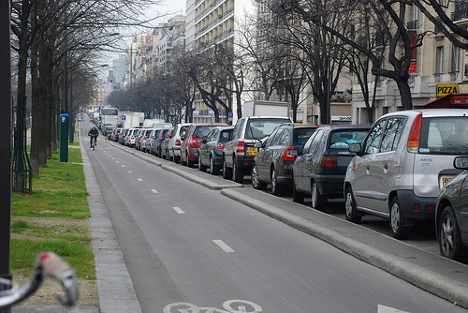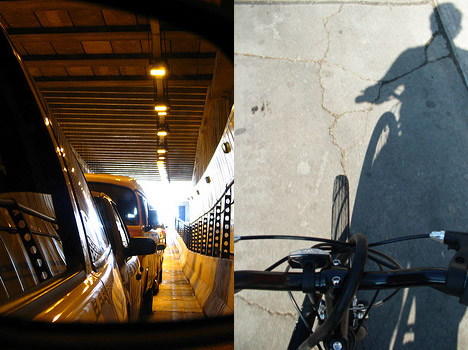traffic
Worldwide, Commuters Are in Pain and Worsening Traffic, Says IBM Report

IBM (yes, the IBM) recently released a global study of traffic, surveying over 8,000 adult drivers in 20 major cities. Perhaps the results are not that surprising - traffic is perceived by drivers as getting worse in the last three years. Thirty percent of those surveyed felt increased stress while 27% reported increased anger. Twenty nine percent reported that traffic harmed their performance in work or school, and 38% reported having cancelled a planned trip due to anticipated traffic.
Reclaim the Streets, Put the Brakes on Car Traffic

Cars promise mobility, and in a largely rural setting they provide it. But in an urbanizing world, where more than half of us live in cities, there is an inherent conflict between the automobile and the city. After a point, as their numbers multiply, automobiles provide not mobility but immobility, as well as increased air pollution and the health problems that come with it.
Amazing! Bike Faster than Helicopters, Running Faster than Car in Sao Paulo, Brazil

Do you want more proof that encouraging car use in a city is only going to lead you to traffic hell? Take a look at Sao Paulo: the city of ridiculous car jams, where there are more privately held helicopters than anywhere else in the world.
Tom Vanderbilt Interview: Drivers Are Disconnected from Other Human Beings (Video)
You Have to See Those Near-Crashes
Traffic
Would you be surprised that road rage can be good for society? Or that most crashes happen on sunny, dry days? That our minds can trick us into thinking the next lane is moving faster? Or that you can gauge a nation’s driving behavior by its levels of corruption? These are only a few of the remarkable dynamics that Tom Vanderbilt explores in this fascinating tour through the mysteries of the road.
NZ Supplement to the Austroads Guide to Traffic Engineering Practice Part 14: Bicycles
The key reference document for the design of cycling facilities in New Zealand.
